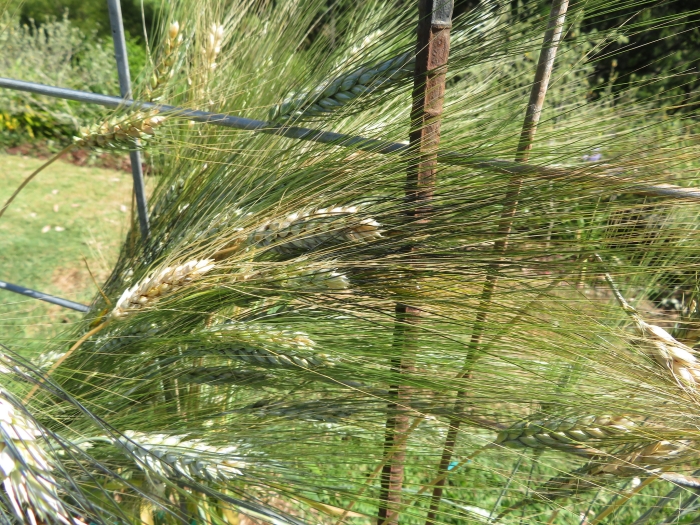Durum Wheat
(Triticum durum)
Durum Wheat (Triticum durum)
/
/

Forest and Kim Starr
CC BY 2.0
Image By:
Forest and Kim Starr
Recorded By:
Copyright:
CC BY 2.0
Copyright Notice:
Photo by: Forest and Kim Starr | License Type: CC BY 2.0 | License URL: https://creativecommons.org/licenses/by/2.0/ | Uploader: Starr Environmental | Publisher: Flickr |


























Estimated Native Range
Summary
Triticum durum, commonly known as Durum Wheat, is an annual grass native to areas along the Upper Nile River. It is a key agricultural crop, ranking as the second most cultivated species of wheat after common wheat, though it accounts for only 5% to 8% of global wheat production. Durum wheat typically grows to about 3-4 feet (0.9-1.2 meters) in height and features a robust stem with long, slender leaves and a head composed of spiky grains. The grains are amber-colored and larger than those of common wheat, which is one of the reasons for its popularity in making pasta due to its high protein and gluten content.
Durum Wheat is valued for its ability to produce higher yields than other wheat types in arid regions with low precipitation (3–5 dm). While irrigation can boost yields, it is not commonly practiced due to the plant’s drought tolerance. Historically, durum wheat was extensively cultivated in Russia during the first half of the 20th century. Today, it remains a vital food crop in West Asia and is widely used for making semolina flour for pasta and couscous. For successful cultivation, it requires full sun exposure and soils with medium drainage. Despite its importance, durum wheat can be susceptible to certain diseases, such as wheat rust, and pests like the Hessian fly, which can significantly impact crop yields.CC BY-SA 4.0
Durum Wheat is valued for its ability to produce higher yields than other wheat types in arid regions with low precipitation (3–5 dm). While irrigation can boost yields, it is not commonly practiced due to the plant’s drought tolerance. Historically, durum wheat was extensively cultivated in Russia during the first half of the 20th century. Today, it remains a vital food crop in West Asia and is widely used for making semolina flour for pasta and couscous. For successful cultivation, it requires full sun exposure and soils with medium drainage. Despite its importance, durum wheat can be susceptible to certain diseases, such as wheat rust, and pests like the Hessian fly, which can significantly impact crop yields.CC BY-SA 4.0
Plant Description
- Plant Type: Grass
- Height: 2-3 feet
- Width: 0.2-0.3 feet
- Growth Rate: Rapid
- Flower Color: N/A
- Flowering Season: Spring
- Leaf Retention:
Growth Requirements
- Sun: Full Sun
- Water: Medium
- Drainage: Medium
Common Uses
Drought Tolerant, Edible*Disclaimer: Easyscape's listed plant edibility is for informational use. Always verify the safety and proper identification of any plant before consumption., Low Maintenance
Natural Habitat
Originally native to areas along the Upper Nile River
Other Names
Common Names: Pasta Wheat, Macaroni Wheat
Scientific Names: , Triticum durum, Triticum turgidum, Triticum aethiopicum, Triticum turgidum subsp. durum, Triticum durum var. hordeiforme, Triticum durum var. leucurum, Triticum durum var. melanopus, Triticum durum var. leucomelan, Triticum durum var. apulicum
GBIF Accepted Name: Triticum turgidum subsp. durum (Desf.) Husn.